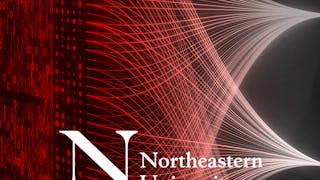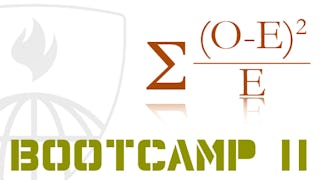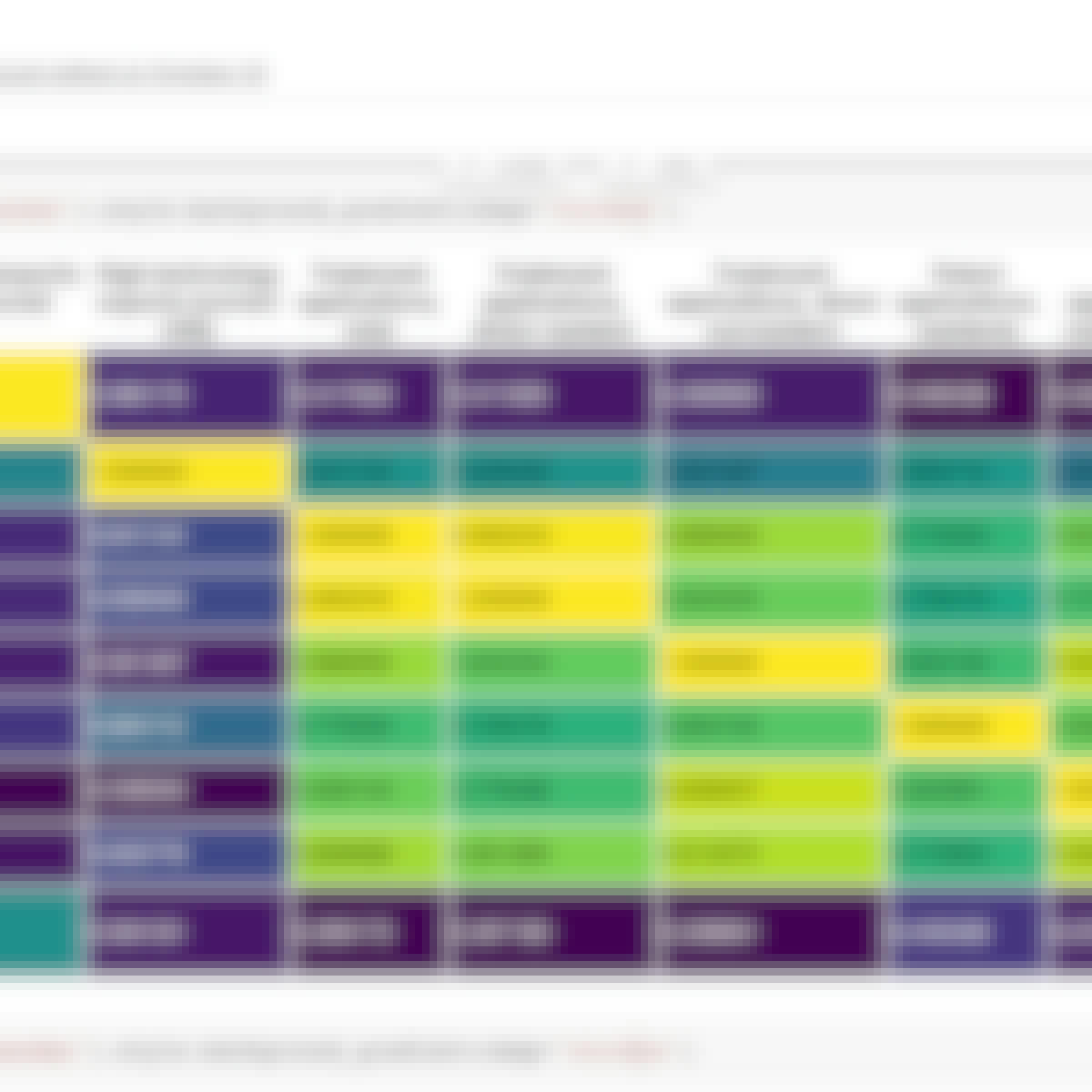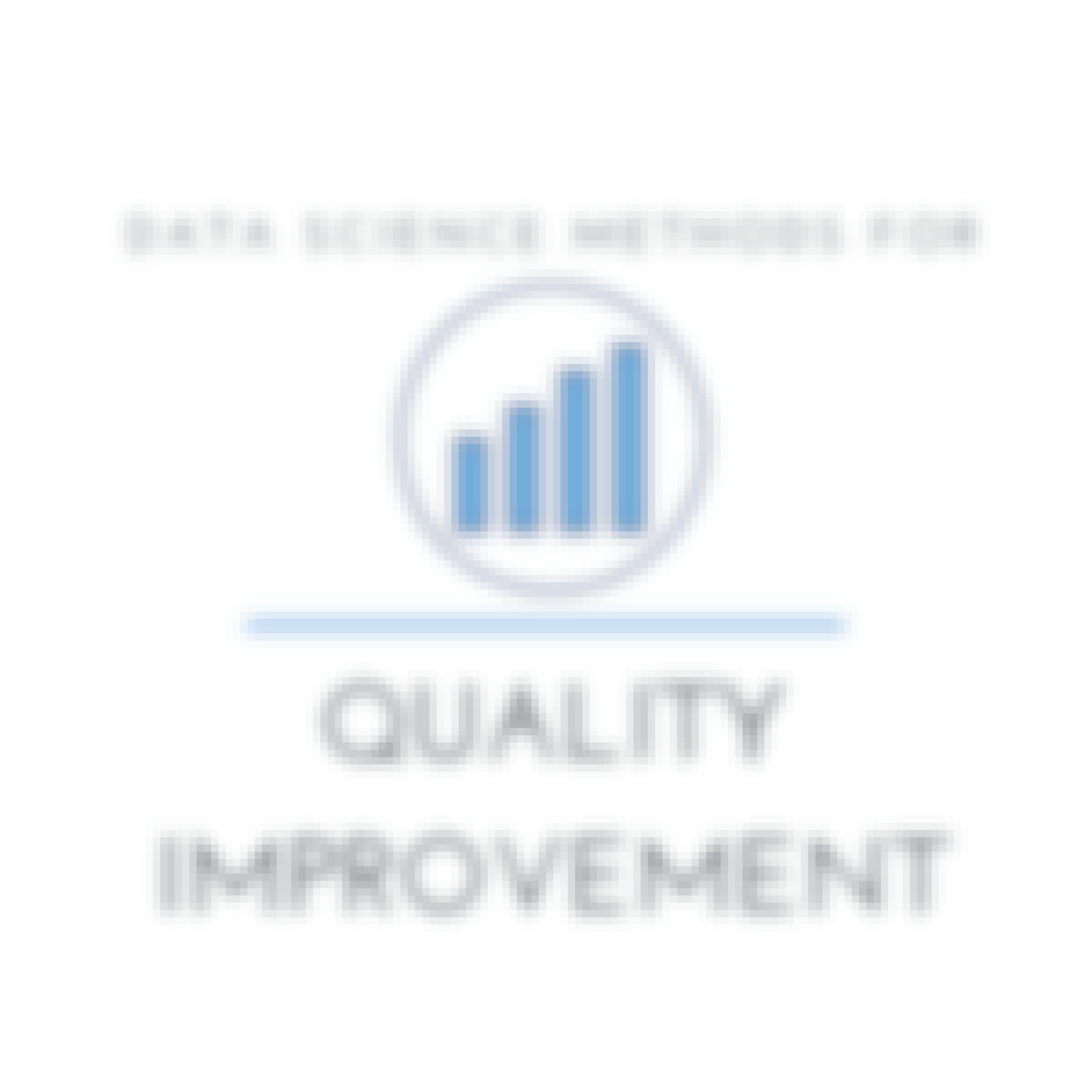- Browse
- Applied Statistics
Applied Statistics Courses
Applied statistics courses can help you learn data analysis, hypothesis testing, regression techniques, and experimental design. You can build skills in interpreting data sets, making predictions, and communicating statistical findings effectively. Many courses introduce tools like R, Python, and Excel, that support performing statistical analyses and visualizing data.
Popular Applied Statistics Courses and Certifications
 Status: PreviewPreviewU
Status: PreviewPreviewUUniversity of Leeds
Skills you'll gain: Exploratory Data Analysis, Statistical Methods, Statistical Modeling, R (Software), Data Collection, Statistical Inference, Probability, Data Analysis, Statistical Analysis, Probability Distribution, Simulations, Statistical Visualization, Descriptive Statistics, Sampling (Statistics), Data Visualization Software
4.8·Rating, 4.8 out of 5 stars10 reviewsIntermediate · Course · 1 - 4 Weeks
 Status: NewNewStatus: PreviewPreviewN
Status: NewNewStatus: PreviewPreviewNNortheastern University
Skills you'll gain: Statistical Hypothesis Testing, Statistical Inference, Sampling (Statistics), Statistical Reporting, Statistical Methods, Probability & Statistics, Statistical Analysis, Experimentation, Data Analysis, Data Presentation, Estimation
Mixed · Course · 1 - 3 Months
 Status: PreviewPreviewB
Status: PreviewPreviewBBall State University
Skills you'll gain: Statistical Methods, Probability, Data Science, Probability & Statistics, Statistical Analysis, Probability Distribution, Statistical Modeling, Bayesian Statistics, Statistical Inference, Sampling (Statistics), R Programming, Statistical Visualization
Build toward a degree
Intermediate · Course · 1 - 3 Months
 Status: Free TrialFree TrialW
Status: Free TrialFree TrialWWesleyan University
Skills you'll gain: Regression Analysis, Statistical Analysis, Statistical Modeling, Data Analysis, Correlation Analysis, SAS (Software), Scatter Plots, Statistical Programming, Predictive Modeling, Statistical Hypothesis Testing, Plot (Graphics), Python Programming
4.4·Rating, 4.4 out of 5 stars274 reviewsMixed · Course · 1 - 4 Weeks
 Status: Free TrialFree TrialI
Status: Free TrialFree TrialIIllinois Tech
Skills you'll gain: Statistical Analysis, Data Analysis, Statistical Programming, Statistical Methods, Statistical Machine Learning, Regression Analysis, Supervised Learning, Statistical Inference, Machine Learning, Unsupervised Learning, Predictive Modeling, Classification And Regression Tree (CART), Feature Engineering, Dimensionality Reduction
Build toward a degree
4.5·Rating, 4.5 out of 5 stars8 reviewsIntermediate · Course · 1 - 3 Months
 Status: Free TrialFree TrialJ
Status: Free TrialFree TrialJJohns Hopkins University
Skills you'll gain: Statistical Hypothesis Testing, Statistical Analysis, Statistical Methods, Probability & Statistics, Statistical Inference, Biostatistics, Sampling (Statistics), Statistics, Data Analysis, Probability Distribution
4.3·Rating, 4.3 out of 5 stars136 reviewsMixed · Course · 1 - 4 Weeks

Skills you'll gain: Exploratory Data Analysis, Box Plots, Correlation Analysis, Data Visualization, Scatter Plots, Data Cleansing, Data Manipulation, Pandas (Python Package), Statistical Hypothesis Testing, Descriptive Statistics, Statistical Analysis, Data Analysis, Probability & Statistics, Python Programming
4.3·Rating, 4.3 out of 5 stars35 reviewsBeginner · Guided Project · Less Than 2 Hours
 Status: Free TrialFree TrialJ
Status: Free TrialFree TrialJJohns Hopkins University
Skills you'll gain: Computer Vision, Supervised Learning, Image Analysis, Applied Machine Learning, Feature Engineering, Machine Learning Algorithms, Data Processing, Predictive Modeling, Machine Learning, Data Cleansing, Scikit Learn (Machine Learning Library), Data Integration, Data Transformation, Artificial Intelligence and Machine Learning (AI/ML), Data Analysis
3.7·Rating, 3.7 out of 5 stars12 reviewsIntermediate · Course · 1 - 4 Weeks
 Status: Free TrialFree TrialU
Status: Free TrialFree TrialUUniversity of London
Skills you'll gain: Sampling (Statistics), Descriptive Statistics, Data Presentation, Statistics, Estimation, Probability, Data-Driven Decision-Making, Probability & Statistics, Statistical Inference, Statistical Hypothesis Testing, Probability Distribution, Data Visualization, Data Analysis, Histogram, Graphing
3.8·Rating, 3.8 out of 5 stars314 reviewsMixed · Course · 1 - 4 Weeks
 Status: Free TrialFree TrialU
Status: Free TrialFree TrialUUniversity of Colorado Boulder
Skills you'll gain: Descriptive Statistics, Statistical Hypothesis Testing, Regression Analysis, Probability Distribution, Statistical Analysis, R Programming, Data Import/Export, Statistical Modeling, Statistical Methods, Plot (Graphics), Statistics, Data Manipulation, Data Analysis, Statistical Inference, Data Structures
4.8·Rating, 4.8 out of 5 stars6 reviewsIntermediate · Course · 1 - 3 Months
 Status: PreviewPreviewN
Status: PreviewPreviewNNortheastern University
Skills you'll gain: Exploratory Data Analysis, Time Series Analysis and Forecasting, Data Analysis, Data Wrangling, Probability & Statistics, Unsupervised Learning, Data Science, Text Mining, Data Manipulation, Statistical Analysis, Data Structures, Data Cleansing, Programming Principles, Data Visualization Software, Python Programming
Mixed · Course · 1 - 4 Weeks
 Status: Free TrialFree TrialU
Status: Free TrialFree TrialUUniversity of Colorado Boulder
Skills you'll gain: Statistical Inference, Probability Distribution, Statistical Analysis, R (Software), Descriptive Statistics, Sampling (Statistics), Statistics, Probability & Statistics, Statistical Hypothesis Testing, Data Analysis, Data Literacy, Probability, Statistical Visualization, Histogram
Build toward a degree
4.7·Rating, 4.7 out of 5 stars34 reviewsBeginner · Course · 1 - 3 Months
Searches related to applied statistics
In summary, here are 10 of our most popular applied statistics courses
- Statistical Methods: University of Leeds
- Engineering Probability and Statistics Part 2: Northeastern University
- Statistical Methods for Data Science: Ball State University
- Regression Modeling in Practice: Wesleyan University
- Statistical Learning: Illinois Tech
- Mathematical Biostatistics Boot Camp 2: Johns Hopkins University
- Basic Statistics in Python (Correlations and T-tests): Coursera
- Applied Machine Learning: Techniques and Applications: Johns Hopkins University
- Statistics for International Business: University of London
- Statistics and Data Analysis with R: University of Colorado Boulder










